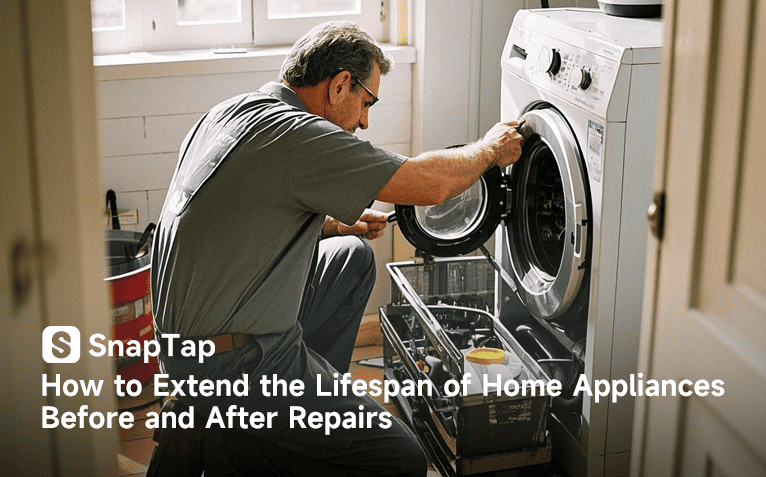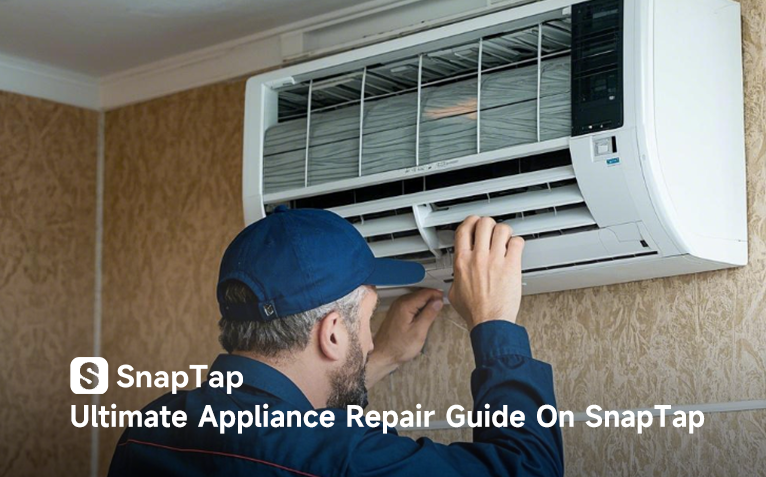
Dishwasher Installation or Repair


Ultimate Appliance Repair Guide On SnapTap

How to Extend the Lifespan of Home Appliances Before and After Repairs

{{title}}
{{websiteArticleAuthor.name}}
{{updateTime}}

Ultimate Appliance Repair Guide On SnapTap

{{title}}
{{websiteArticleAuthor.name}}
{{updateTime}}


